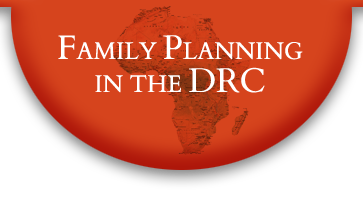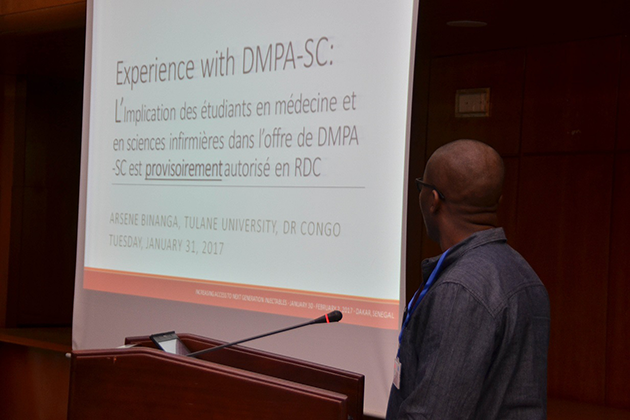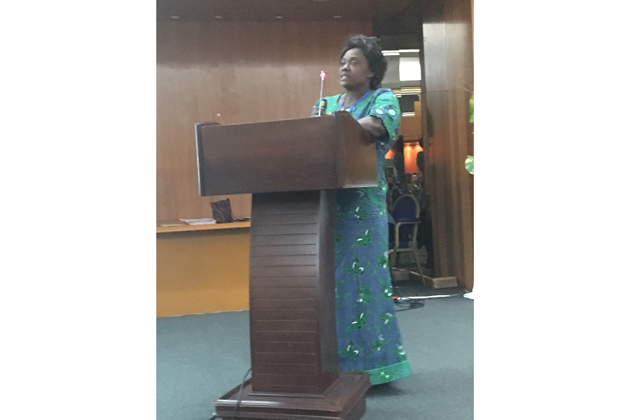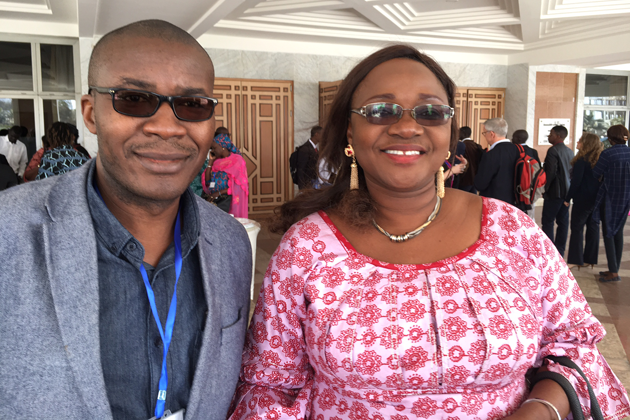Increasing Access to Next Generation Injectables Meeting
January 31 – February 2, 2017
Dakar, Senegal
An international meeting on subcutaneous injectable contraception took place on January 31st to February 2nd in Dakar, Senegal. In the DRC, this method is known by its Pfizer brand Sayana® Press (SP). However, as the field anticipates other manufacturers or generics in the future, it is referring to the method as DMPA-SC. The goal of the meeting was to develop country-specific strategies for increasing access to SP. This method presents promising opportunities to close gaps in contraceptive access, especially among young women. Over 150 people from 27 different countries participated. Twelve of the participants are currently working in the DRC.
Dr. Arsene Binanga presented on an innovative approach to community-based distribution of SP in the DRC. In 2015, a group of researchers from Tulane University conducted pilot research on using medical and nursing students to provide SP injections to women in Kinshasa. The recipients in the pilot reported high levels of satisfaction with the method and the services they received from the students. The initial success of this pilot has important implications in the DRC and other participating countries. Given chronic shortages of healthcare personnel, this task-shifting approach can expand community-based distribution of modern contraception. Dr. Binanga’s lecture sparked discussion of using similar task-shifting models in countries that share some of the DRC’s challenges.
Participants worked in groups to develop SMART objectives for expanding access to SP in their countries. This format allowed participants to learn from the successes and barriers faced by other countries, while focusing on concrete next steps. The DRC prioritized institutionalizing the involvement of medical and nursing students in the distribution of SP, and appealing to major donors for additional funding for this method. The meeting provided an opportunity for key leaders to strategize methods of increasing voluntary and quality access to SP.


















